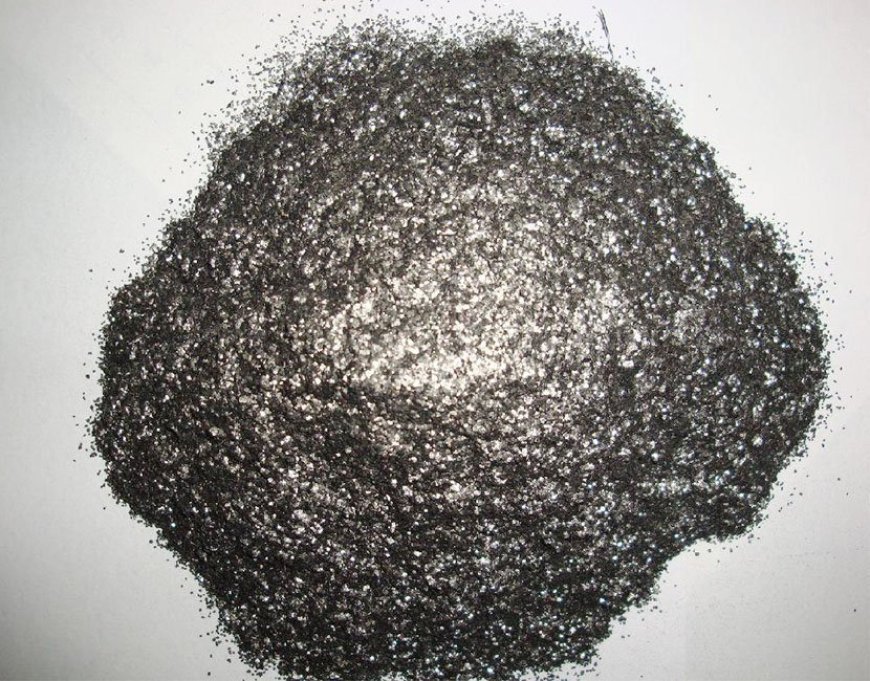Flake Graphite: Properties, Applications, and Processing Methods

What is Flake Graphite?
Flake graphite is a naturally occurring form of crystalline carbon. It contains layers of carbon atoms bonded together in a repeating hexagonal pattern known as graphene. When mined from deposits, it separates into thin, flat, plate-like particles – hence the term “flake.”
Applications
It has a wide range of commercial and industrial uses due to its unique combination of properties including high strength, flexibility, chemical inertness and conductivity. Some of its major applications include:
Battery Production
Naturally occurring graphite is ideal for use as anodes in lithium-ion batteries. Its layered structure allows lithium ions to rapidly intercalate during the charging process. Leading battery manufacturers rely on it for the anodes used in everything from electric vehicles to portable electronics. Demand for it from the battery sector is growing dramatically each year as green energy adoption increases.
Lubricants
When added to lubricating oils and greases, it acts as an important dry lubricant. Its layered structure allows it to slide easily over metal surfaces, reducing friction and wear. Graphite lubricants are commonly used for heavy machinery, valve seals, gears and other moving parts that experience high pressures or temperatures.
Refractories
Graphite's heat resistance and chemical inertness make it a critical component of refractory materials used in high-temperature industrial processes. Flake Graphite improves the mechanical strength and creep resistance of refractory bricks, linings and mortars employed in applications like blast furnaces, kilns and incinerators.
Foundry Products
It provides lubricity when incorporated into foundry ramming mixes, coatings and feeders. It helps reduce metal sticking to molds and improves castings surface finishes. Many ductile iron and aluminum foundries cannot operate without consistent supplies of it.
Pencils and Powder Coatings
The unique combination of strength, flexibility and darkness that it offers has led to its use in applications such as powder coatings, gaskets, brake linings and most notably - common pencil “lead.” Fine grain flake graphite particles are perfectly shaped and textured for marking on paper.
Processing and Properties
Its deposits form via metamorphism of carbonaceous precursor sediments like coal. Heat and pressure over geological time transform and align the carbon atoms. Flake deposits are mined using both surface and underground techniques based on ore body structure.
Processing involves crushing, milling and flotation to liberate individual flake particles and separate them from unwanted gangue minerals. Sizing then sorts flakes by thickness into categories appropriate for different end uses. Natural flake graphite is heat treated to enhance properties and achieve required purity levels.
High-purity possesses a combination of density (2.26–2.27 g/cm3), strength, chemical resistance and flexibility not achieved in most synthetic materials. Individual flakes typically range from few microns up to several millimeters in width. Specific surface areas vary considerably depending on flake size distribution and processing method.
Deposits Around the World
While small flake graphite deposits exist in numerous countries, historically major global supplies have come from just a handful of significant mining jurisdictions. Some of the largest producing areas include:
China
China holds around 70% of the world’s identified flake graphite reserves and is the dominant global supplier. Major operations are located in the provinces of Jixi, Heilongjiang and Shandong. China has ramped up production dramatically in recent decades to keep pace with expanding industrial demand.
Canada
The Canadian province of Quebec contains the largest reserves outside of China, centered around the historic Bourier and Lac-des-Îles deposits. Canadian graphite has a pristine crystallinity and purities up to 99.95% making it highly sought after. Producers have invested in expansion projects to supply growing speciality markets.
Madagascar
With an estimated 10% of global reserves, Madagascar’s district of Tsimoro contains syngenetic vein-type deposits. Producer Talaxis Mining has played a pivotal role in developing the industry and shipping product. Environmental and infrastructure issues have posed challenges versus competitors.
Brazil
The Brazilian state of Minas Gerais hosts flake deposits with purities reaching 99.8%. Imerys Graphite & Carbon Brazil has operated the high-grade Santa Cruz Mine for several decades while expanding its processing plant. Political and currency risks have impacted production levels at times.
Mozambique
Recent discoveries of high-quality, large flake deposits in northern Mozambique’s Cabo Delgado province could position the country as a major new supplier. But developing infrastructure and transport links presents difficulties versus established mining regions.
It has proven itself as a highly useful and versatile industrial mineral over many decades of commercial use. Its unique crystalline structure and properties translate to diverse performance advantages across crucial applications. While China dominates global supply, new discoveries and project expansions have potential to strengthen supply diversification moving forward. Steady industrial demand growth driven by markets like lithium-ion batteries ensures it will remain a strategic commodity.
Get more insights on Flake Graphite
For Deeper Insights, Find the Report in the Language that You want.
About Author:
Ravina Pandya, Content Writer, has a strong foothold in the market research industry. She specializes in writing well-researched articles from different industries, including food and beverages, information and technology, healthcare, chemical and materials, etc. (https://www.linkedin.com/in/ravina-pandya-1a3984191)












